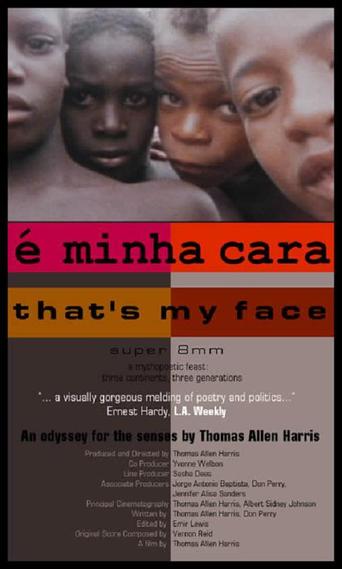

I saw the documentary "That's my face". Although an obscure piece, it gets the point across for me. The white guy that wrote the review, "Response to Maybe Worthwhile for American Blacks—Maybe". I knew the Author: ekeby from Wisconsin was a white man. You can tell from his review. White people will never understand black people. That film was for blacks, by a black person. White people can't understand our unseen language. Repeat: I saw the documentary "That's my face". Although an obscure piece, it gets the point across for me. The white guy that wrote the review, "Response to Maybe Worthwhile for American Blacks—Maybe". I knew the Author: ekeby from Wisconsin was a white man. You can tell from his review. White people will never understand black people. That film was for blacks, by a black person. White people can't understand our unseen language.
... View MoreI approached this film with high hopes that got ground down within the first 30 minutes. The other review here gives you a good idea of what this movie is about, so I won't go into any of that. I understand why the other reviewer liked this movie, but for me, it fails for the same reasons.I thought the premise of this movie promised more than it delivered. I think what discouraged me most was its style. The filmmaker narrates in a breathy voice heavy with MEANING. The home movies included are just what you would expect, shots of kids, aunts, friends, etcetera, mugging for the camera. The problem for me was that all the rest of the movie seemed to be made up of the same kind of footage--amateur, herky-jerky hand-held home movies. I found it tiresome and not very interesting. However, this movie might well resonate with Black Americans, depending upon how interested they are in the subject.5-14-2017 edit: RESPONSE TO Response to Maybe Worthwhile: I took your point and changed the title of my review from "Maybe Worthwhile for American Blacks--Maybe" to "For me, more about style than substance." You are correct that I am white. I'm also gay, but I'm not sure I could say "straight people will never understand gay people" as you have said in respect to Whites' inability to understand Blacks. It's too broad a statement. What I would say, however, is that straight people will never understand the pain of exclusion, derision, and hatred that gay people experience. You were right to call me out on my review title; it was presumptuous, and I apologize. I haven't changed my opinion about the movie though. There was no disclaimer on the movie saying it was only for Black people. If there had been, I wouldn't have watched it. :)
... View More*MINOR SPOILERS*On first viewing, this stands out as yet another excellent (mostly) offering in the latest wave of American documentaries. Harris' attempts at solving the riddles of identity (personal identity, and how that identity fits into a greater community) are - in THAT'S MY FACE traced back to a childhood in the Bronx; a childhood enhanced or haunted by spiritual visions, conflicting ideas on the place of Christianity in an African-American family, and a father's view of Africa as an idealized homeland. Harris' reality is suddenly transformed when his mother accepts a teaching job in Tanzania (again - as with his Bronx childhood - documented with carefully restored super-8 footage), and the family is exposed to African customs both inspiring, and quite different from those a Black American would be accustomed to. Harris returns to the US, and finished Harvard, with the intent of attending med school. He instead opts to explore his still-evolving interest in pan-African spirituality by making another trip - this one a more exploratory trip to black communities in the Northeastern region of Brazil. In explorations of ritual, Harris eventually begins to connect the pieces of family history, identity and spirituality, cryptic though it all remains (he's told rather bluntly at one point in Brazil that 'black Americans coming here are searching for something that doesn't exist anymore,' a tragic-but-true observation with profound psychological resonance).Harris is a little too ethereal for his own good through much of THAT'S MY FACE, but this is still a promising and original debut. It will be interesting to see what he does next.
... View More